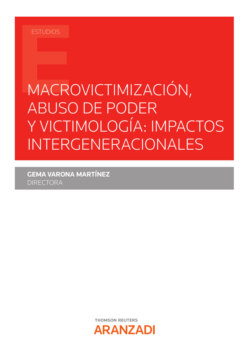Читать книгу Macrovictimización, abuso de poder y victimología: impactos intergeneracionales - Gema Varona Martínez - Страница 21
На сайте Литреса книга снята с продажи.
2.3. Victims of the fight against terrorism
ОглавлениеAs guardian of human rights and the rule of law in Europe, both the Parliamentary Assembly96 and the Committee of Ministers97 of the Council of Europe have stressed the need to respect human rights in the fight against terrorism and have adopted a series of instruments aimed at reinforcing compliance of counter-terrorism measures with the ECHR and international law (including international humanitarian and refugee law). Particularly, the Guidelines on Human Rights and the Fight against Terrorism of 200298 contain a series of measures that Member States should take in order to strengthen respect for human rights in all aspects of the fight against terrorism.
However, it should be noted that the 2002 Guidelines provide that the fight against terrorism may justify a series of derogations, in accordance with the principle of proportionality and the jurisprudence of the European Court of Human Rights99. In this respect, it should be noted that the Court considers that the imperatives of the fight against terrorism require a certain flexibility in interpreting some of the guarantees such as the right to a fair trial, the rights of defense, the conditions of detention, respect for privacy, the principle of non-refoulment, etc.100. Nevertheless, the Council recalls that a series of fundamental rights cannot suffer from any derogation under any circumstances: the right to life, the prohibition of torture or inhuman or degrading treatment, the principle that penalties must have a sound legal basis, the prohibition of criminal retroactivity and any provision of customary international humanitarian law. In a more binding way, the 2005 Convention on the Prevention of Terrorism101 provides that all measures taken for the prevention or the fight against terrorism must respect the rule of law, International and European Human Rights Law and any other provisions of International Law (article 3), in accordance with the principles of proportionality and necessity (article 12).
Regarding the compensation of victims of the fight against terrorism, the Proceedings of the High-Level Seminar on “Protecting human rights while fighting terrorism” of 2005102 stress the need to repair the damage suffered by the population during anti-terrorist operations103. The Group of Specialists on Human Rights and the Fight against Terrorism (DH-S-TER) also considers that victims of error or abuse committed in the fight against terrorism should be compensated, particularly for moral damages where the presumption of innocence has not been respected104. In this respect, the DH-S-TER underlines the risk of media lynching that hangs over suspected terrorists105. To avoid such risk, the Declaration on Freedom of Expression and Information in the Media in the Context of the Fight against Terrorism of 2 March 2005 emphasizes the need to respect the principle of presumption of innocence of all the persons subject to prosecution for terrorist acts.
